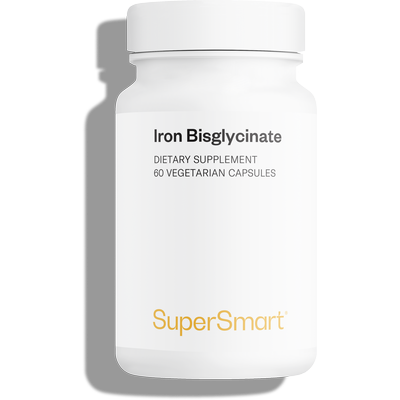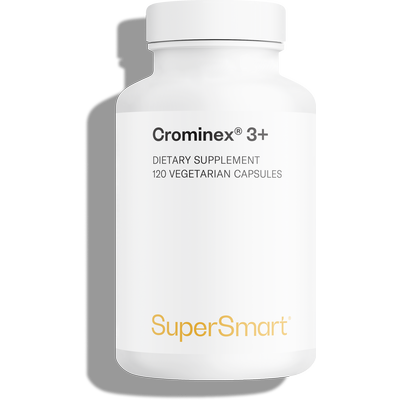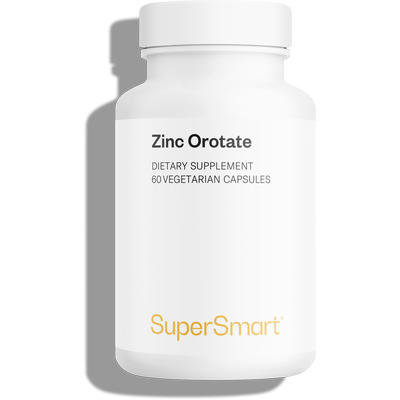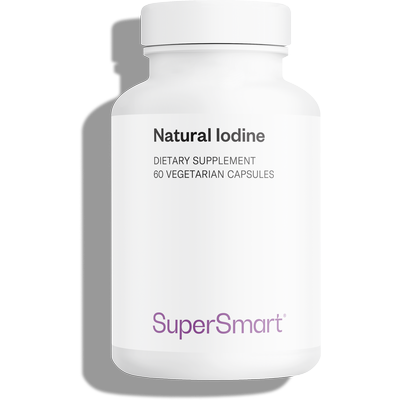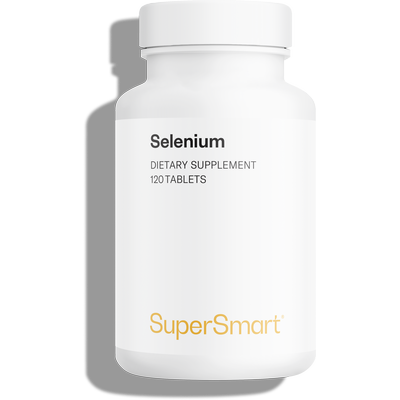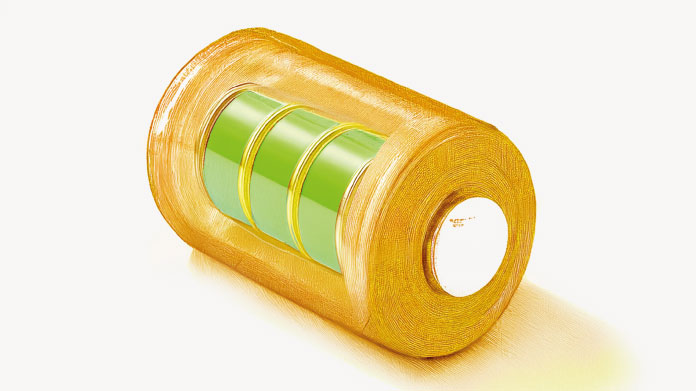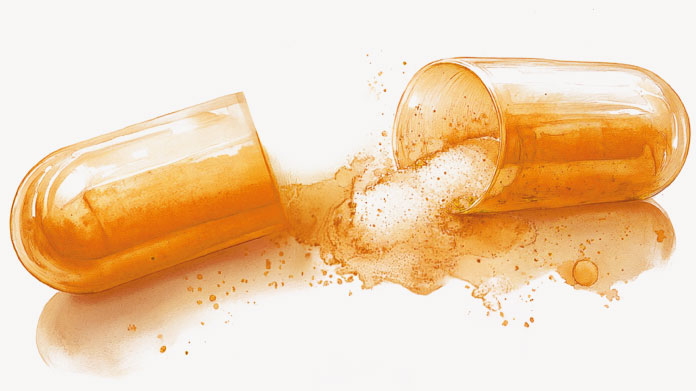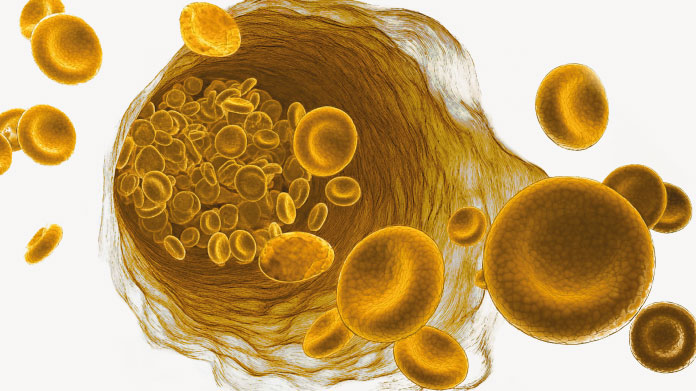Trace-elements: what are they? What are their benefits for health?
We often hear about trace-elements or trace-minerals without knowing exactly what they are. SuperSmart takes a look at the nature of these essential compounds and their benefits for our health.
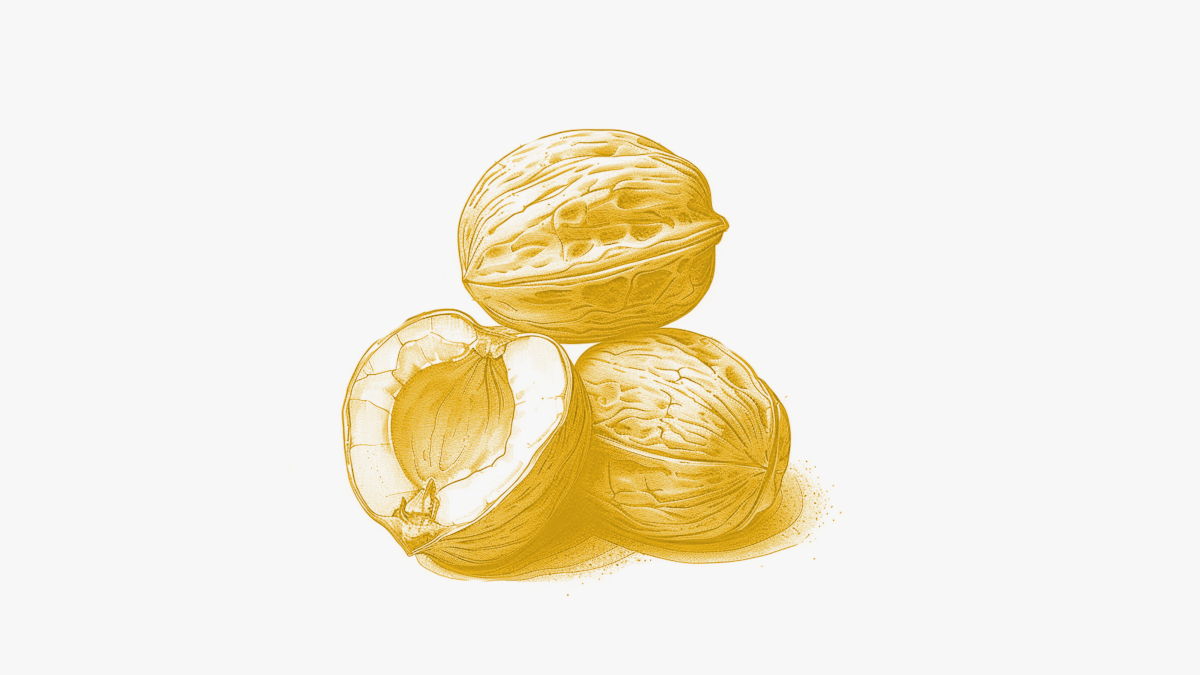
What is a trace-element?
Definition of trace-elements
Unlike macronutrients (proteins, fats, carbohydrates) and minerals, trace-elements (or trace-minerals) are chemical elements present in minute quantities in living organisms (less than 1mg/kg of bodyweight), though in some cases, they play an equally critical role (1). Deficiency or excess can thus result in significant consequences for our health and vitality.
There are 4 distinct groups:
- Essential trace-elements: iodine, iron, copper, zinc, selenium, chromium, molybdenum, fluorine.
- Essential trace-elements with a low-risk of deficiency: manganese, silicon, vanadium, nickel, tin, cobalt.
- Experimentally-essential trace-elements (strong indications of their potential importance): boron, bromine, arsenic, lead, cadmium, lithium.
- Probably-essential trace-elements (but this has yet to be proven): scandium, tellurium, beryllium, lanthanum, niobium.
What are the health benefits of trace-elements?
Each is essential in its own way, playing very specific roles: some are involved in the structure of vitamins, others in the body’s defences or in influencing biological processes such as enzyme catalysis, oxygen transport, regulation of metabolism or protection against oxidative stress.
Trace-element deficiencies: how to correct them
Trace-element deficiencies exist, especially in people with specific needs such as children, pregnant women and the elderly. In most cases, there are no warning signs: the effects are insidious, causing increasing disorders and potentially diseases, including degenerative diseases and cancer.
Correcting these deficiencies is mainly tackled through nutritional advice, but sometimes diet alone is not enough (the deficiency is too severe, there are absorption problems, or diseases that bring increased requirements), in which case dietary supplementation is recommended (oligotherapy) under the supervision of a health professional.
The main trace-elements and their role in health
Iron
Though present at very low levels in the body (as little as 0.005% of bodyweight), iron is vital for forming haemoglobin and myoglobin, two proteins which are able to transport oxygen in red blood cells and muscles. According to the World Health Organization (WHO), 2 billion people worldwide suffer from anaemia, ie, iron deficiency.
What are the best sources of iron?
There are two forms of iron: haem (primarily animal source) and non-haem (animal- and plant-source). The first is absorbed by the body five times more effectively than the second, so it is important to consider animal sources of iron such as liver (chicken or beef), seafood, fish and meat, without ignoring plant sources such as tofu, pumpkin seeds, white beans, lentils and spinach
A recommended iron supplement: Iron Bisglycinate for its exceptional bioavailability and absence of adverse effects on the lining of the stomach.
Zinc
After iron, zinc is the second most important trace-element in the body in terms of quantity at around 2.5g, mainly concentrated in the muscles and bones. It is essential for forming a great many molecules, and supports, in particular, healthy immune system function.
What are the best sources of zinc?
Oysters are undoubtedly the best source of zinc, ahead of fish, seafood, pulses, quinoa, muesli and dark chocolate. It’s worth noting that aspirin and alcohol impair the absorption of zinc.
A recommended zinc supplement: Zinc Orotate for its high level of uptake.
Iodine
Another trace-element with a major role in health, despite its very low presence in the body (10mg-20mg) is iodine. It supports normal nervous system function and is involved in the production of thyroid hormones which regulate basal metabolic rate, energy levels and growth. The daily recommended intake is 150µg for adolescents and adults and 200µg for women who are pregnant or breastfeeding.
What are the best sources of iodine?
Fish and seafood are the best sources with an average 80µg-150µg per 100g. It is also found to a lesser extent in table salt (where it is added to prevent iodine deficiency), milk, meat, eggs and grains.
A recommended iodine supplement: Natural Iodine, extracted naturally from the algae Ascophyllum nodosum.
Selenium
As well as its role in maintaining healthy hair and nails, selenium helps protect cells against oxidative stress and supports normal immune system function. It is also the main constituent of selenoproteins, including glutathione peroxidase which fights free radicals.
What are the best sources of selenium?
The best source of selenium is unquestionably Brazil nuts (95µg per nut, ahead of oysters, fish, seafood and offal. Whole grains are also good sources when produced in areas where the soil is rich in this mineral (for example, North America).
A recommended selenium supplement: L-Selenomethionine for its organic form which is absorbed better than standard inorganic ones (selenite and selenium sulphide).
Copper
Copper is an essential metal, present at trace levels in the body (75mg-100mg), but which can be extremely toxic in excess. It is best known for its anti-inflammatory and anti-infectious properties, but it is also essential for mobilising iron and synthesising myelin, a lipid membrane that forms a sheath around nerve fibres.
What are the best sources of copper?
The foods which contain the most copper are liver, shellfish, nuts, chocolate, pulses and fruit. A balanced diet is thought to provide around 1mg-3mg a day.
Chromium
Chromium is biologically active in the body in the form of ‘trivalent chromium’ in a complex called ‘glucose tolerance factor’ (GTF). It plays a role in the activity of insulin, a hormone which promotes the absorption of glucose in the blood by adipose cells, liver cells and skeletal muscle cells.
What are the best sources of chromium?
Brewer’s yeast, spices such as black pepper, thyme, egg yolk and liver are the foods which generally contain the most, ahead of nuts, wheatgerm and whole grains.
A recommended chromium supplement: Crominex® 3+ for its trivalent form and inclusion of natural ingredients which increase chromium’s bioavailability and protection.
Manganese
Manganese is essential for the activity of numerous enzymes including those that support the metabolism of neurotransmitters in the brain, and make it easier to store acetylcholine, a neurotransmitter involved in memory and learning. Adequate intakes are estimated to be 1.8mg-2.3mg a day for adults. In excess, however, it can seriously affect liver health and the nervous system.
What are the best sources of manganese?
Molluscs (especially mussels, with 6.8mg per 100g), nuts, pumpkin seeds, legumes and cereal products (wheat bran, oat flakes, wholewheat pasta, wholemeal bread …) contain at least 1mg per portion.
Molybdenum
Molybdenum plays many role in the body including helping to mobilise iron, break down sulphites (toxic for the body) and support the synthesis of proteins and purines which are part of the composition of DNA. The body contains just 10mg, mainly concentrated in the liver, kidneys, adipose tissue and bones. The recommended daily intake for healthy adults is 30μg-50μg: this is usually achieved without difficulty. Deficiency only occurs in individuals suffering from absorption problems such as Crohn’s disease.
What are the best sources of molybdenum?
Almost all foods contain a little molybdenum but offal, legumes and wholegrains are the best sources.
SUPERSMART ADVICE
References
- Virginie Charbit. Les oligoéléments : rôle et conseils du pharmacien d’officine . Sciences pharmaceutiques. 2017. ffdumas-01565830f
Keywords

